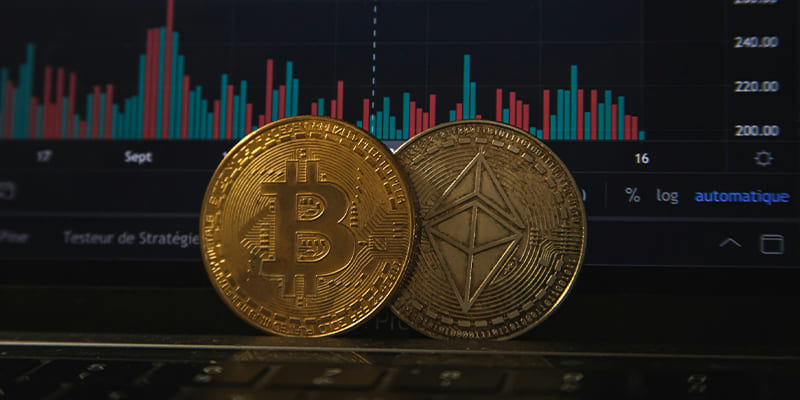
It is not the first year that many countries have been step by step trying to legally regulate various aspects of activities with crypto assets. At the same time, despite the fact that some countries prohibit the conduct of activities with crypto assets, it is almost impossible to actually ban it, since there are many ways to continue its conduct bypassing the established prohibitions. In addition to the above, the legal regulation of receiving income from conducting activities with crypto assets, given the significantly increased cost of cryptocurrencies (in particular, Bitcoin) over the past year, will allow the state to have another source of budget replenishment. A significant number of countries have already adopted relevant legislation, fully or partially regulating activities with crypto assets. However, in Ukraine, the regulation of this aspect is still on pause.
December 2, 2020, the Verkhovna Rada of Ukraine in the first reading adopted the Draft Law “On Virtual Assets” and at the moment the document is being prepared for the second reading. It defines such basic concepts as “virtual asset”, “virtual asset wallet”, “virtual asset key”, “virtual asset service providers”, “virtual asset market participants”; etc.
According to this Project:
Virtual Asset — it is a collection of data in electronic form, which has a value and exists in the system of circulation of virtual assets.
A virtual asset can be both an independent object of civil circulation, and certify property or non-property rights, in particular, the right to claim other objects of civil rights. At the same time, the Draft expressly states that virtual assets are not a means of payment on the territory of Ukraine.
A business entity that carries out in the interests of third parties one or more types of activities with virtual assets established by law is considered a provider of services related to the circulation of virtual assets and is subject to mandatory state registration. These activities include:
- storage or administration of virtual assets and virtual asset keys;
- virtual asset exchange;
- transfer of virtual assets;
- participating in and providing financial services related to the issuer’s offer and/or sale of virtual assets.
In addition to mandatory registration, the provider of services related to the circulation of virtual assets must also meet certain requirements, namely:
- impeccable business reputation of the leader and participants;
- disclosure of information about the ownership structure (including information about ultimate beneficiaries or their absence);
- developed and implemented internal financial monitoring procedures;
- Developed and implemented rules for the processing of personal data.
If an individual or a business entity does not carry out these types of activities in the interests of third parties, then such activities are not considered to be the provision of services related to the circulation of virtual assets and are not subject to mandatory registration.
In accordance with the draft law, the Ministry of Digital Transformation of Ukraine, within 30 days, decides to conduct state registration of the activities of the service provider related to the circulation of virtual assets and enter it into the State Register of service providers related to the circulation of virtual assets, or decides to refuse . The lines of validity of state registration is unlimited.
At the moment, consideration of the Draft Law of Ukraine “On Virtual Assets” is not on the agenda in the Verkhovna Rada of Ukraine. However, new bills on the regulation of activities with crypto assets have not yet been submitted for consideration.
What about taxes?
Much earlier (back in November 2019) the Draft Law of Ukraine “On Amendments to the Tax Code Regarding the Taxation of Operations with Crypto Assets” was submitted for consideration. The main idea of this bill is to designate the profit from operations with crypto assets as a positive difference between the income received by the taxpayer from the sale of crypto assets and the costs associated with their acquisition and / or creation. As a general rule, it is proposed that such profits be the basis for the application of a general income tax rate of 18% (+ 1.5% military tax). At the same time, it is proposed to set a rate of 5% for taxing investment profits from the sale of crypto assets for a period of 5 years.
It should be noted that despite the fact that the bill was never adopted, the rules specified in it on the taxation of profits received from activities related to crypto assets are already applied in practice. Thus, the indicated profit is taxed at a general rate of 18% (+ 1.5% military tax) and falls under the category “other income”.
In turn, individual entrepreneurs engaged in cryptocurrency mining are most often on a simplified taxation system and pay 5% tax on their income. However, this approach is quite risky, since in practice individual entrepreneurs were excluded from the Register for conducting activities that were not included in the list of activities in which they are engaged.
Thus, at the moment there is a legal conflict when, on the one hand, there are incomes received from activities with crypto assets, and on the other hand, there is no legal regulation of the issues of declaring and taxing such incomes. So, as it was indicated, some entrepreneurs try to declare their income received from activities with crypto assets and pay taxes, and in return they face the risk of being excluded from the Register for conducting activities outside the law.
Some entrepreneurs and individuals who want to conduct activities with crypto assets within the legal framework sometimes also consider obtaining residency in jurisdictions where such activities are legally regulated.
For information regarding obtaining legal advice on doing business with crypto assets in Ukraine or choosing a jurisdiction for doing crypto business, you can contact tel. +38 (063) 388 81 20 or e—mail: info@voropaevltd.com.ua

